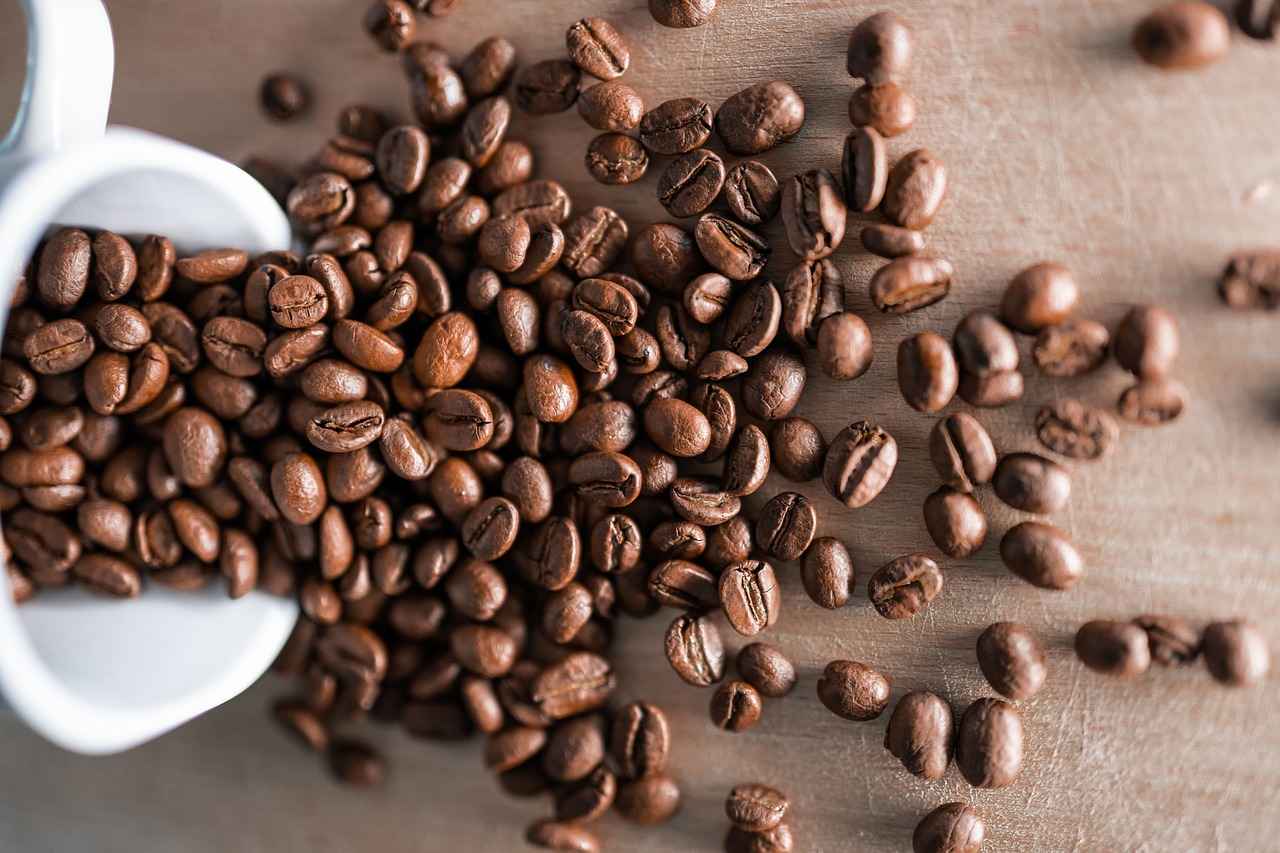This article delves into the art of brewing espresso using a portable coffee maker, providing invaluable tips, techniques, and insights for coffee enthusiasts who desire convenience without sacrificing quality.
Understanding the Basics of Espresso
To create the perfect espresso, it is essential to grasp its fundamental characteristics. Key factors include grind size, water temperature, and extraction time, all of which significantly influence the final flavor profile.
Choosing the Right Portable Coffee Maker
Selecting the ideal portable coffee maker is crucial for achieving excellent espresso. Considerations such as size, ease of use, and brewing method can greatly enhance your coffee experience.
- Types of Portable Coffee Makers: Various types exist, including manual, semi-automatic, and fully automatic machines. Each type offers unique features tailored to different brewing preferences.
- Manual Espresso Makers: These provide a hands-on approach, allowing users to control every aspect of the brewing process for a personalized cup.
- Automatic Espresso Machines: These simplify the brewing process, often featuring programmable settings to cater to convenience seekers.
Key Features to Consider
When selecting a portable coffee maker, look for essential features such as build quality, pump pressure, and ease of cleaning, as these can significantly impact your brewing experience.
Mastering the Brewing Process
The brewing process is where the magic happens. Understanding the steps involved, from grinding the coffee to tamping and extracting, is crucial for achieving that perfect shot of espresso.
- Grinding the Coffee Beans: A fine grind is necessary to create the right resistance during extraction, resulting in a rich and flavorful shot.
- Tamping Techniques: Proper tamping is vital for an even extraction. Learn the best methods to apply the right amount of pressure for optimal flavor.
Perfecting Your Espresso Recipe
Experimenting with different coffee beans, water ratios, and brewing times can lead you to discover your ideal espresso recipe, tailored to your taste preferences.
- Choosing the Right Coffee Beans: The type of beans you use greatly affects your espresso’s flavor. Explore various origins and roast profiles to find your perfect match.
- Adjusting Water Temperature and Pressure: These factors are critical in espresso extraction. Learn how to manipulate them to enhance flavor and consistency.
Cleaning and Maintenance Tips
Regular cleaning and maintenance of your portable coffee maker are essential for longevity and optimal performance. Discover best practices to keep your equipment in top shape.
- Daily Cleaning Routines: Establishing a daily routine helps prevent residue buildup and ensures each cup maintains its intended flavor.
- Long-term Maintenance Considerations: In addition to daily cleaning, long-term care includes descaling and checking for wear and tear.
Conclusion: Enjoying Your Perfect Espresso
With the right knowledge and tools, brewing perfect espresso with a portable coffee maker is entirely achievable. Embrace the journey of experimentation and enjoy your delicious creations wherever you go.

Understanding Espresso Basics
To brew the perfect espresso, it is essential to grasp its fundamental characteristics. These elements include grind size, water temperature, and extraction time, all of which play a crucial role in shaping the final flavor profile of your espresso.
Firstly, the grind size is paramount. Espresso requires a fine grind to create the necessary resistance during extraction. A coarser grind may lead to under-extraction, resulting in a sour taste, while a grind that is too fine can cause over-extraction, yielding a bitter flavor. Therefore, achieving the right grind size is vital for a balanced shot.
Next, water temperature significantly influences the extraction process. The ideal temperature for brewing espresso typically ranges between 90 to 96 degrees Celsius (194 to 205 degrees Fahrenheit). Water that is too hot can scorch the coffee, while water that is too cool may not extract the flavors adequately. Precision in this area can greatly enhance the espresso’s richness and complexity.
Lastly, extraction time is critical. A standard espresso shot should take approximately 25 to 30 seconds to extract. This time frame allows for optimal flavor extraction, balancing acidity and sweetness. Adjustments to extraction time can lead to varying flavor profiles, so it’s essential to experiment to discover your ideal brew.
In conclusion, understanding these fundamental characteristics is the first step towards mastering the art of espresso brewing. By focusing on grind size, water temperature, and extraction time, you can significantly improve your espresso-making skills and enjoy a delicious cup every time.

Choosing the Right Portable Coffee Maker
is essential for coffee lovers who want to enjoy quality espresso on the go. With a myriad of options available, understanding the key factors that influence your choice can significantly enhance your coffee experience.
When selecting a portable coffee maker, consider the following aspects:
- Size: The dimensions of the coffee maker are crucial, especially if you plan to travel. Look for a model that is compact yet allows you to brew a satisfying cup of espresso.
- Ease of Use: A user-friendly design is vital for those who may not be coffee-making experts. Choose a model that simplifies the brewing process while still delivering excellent results.
- Brewing Method: Different portable coffee makers utilize various brewing methods, such as manual, semi-automatic, or fully automatic. Each method has its own set of advantages and may cater to different brewing preferences.
- Build Quality: Durability is key when investing in a portable coffee maker. Look for options made from high-quality materials that can withstand the rigors of travel.
- Pump Pressure: The pressure at which the coffee is brewed can greatly affect the flavor of your espresso. Opt for a coffee maker that offers sufficient pump pressure to extract the rich flavors from your coffee grounds.
Additionally, consider the cleaning process involved with the coffee maker. A model that is easy to clean will save you time and ensure that your coffee maintains its intended flavor.
In summary, choosing the right portable coffee maker involves assessing size, ease of use, brewing method, build quality, pump pressure, and cleaning convenience. By taking these factors into account, you can find a coffee maker that not only fits your lifestyle but also helps you brew the perfect espresso every time.
Types of Portable Coffee Makers
When it comes to brewing coffee on the go, portable coffee makers have become increasingly popular among coffee enthusiasts. The variety of options available caters to different preferences and brewing styles. Below, we explore the main types of portable coffee makers, detailing their unique features and benefits.
- Manual Espresso Makers
Manual espresso makers are designed for those who enjoy a hands-on brewing experience. These devices require the user to exert pressure to extract the espresso, allowing for complete control over the brewing parameters. This type is perfect for coffee lovers who appreciate the art of brewing and want to customize their cup according to personal taste.
- Semi-Automatic Espresso Machines
Semi-automatic machines offer a balance between control and convenience. Users can manage the grind size and tamping while the machine automates the water heating and pressure application. This type is ideal for those who want to experiment with different brewing techniques while still benefiting from some automated features.
- Fully Automatic Espresso Machines
For maximum convenience, fully automatic espresso machines take care of nearly every step in the brewing process. With programmable settings for grind size, water temperature, and brew strength, these machines are perfect for busy individuals who want great coffee without the fuss. They often come with built-in grinders and milk frothers, making them versatile for various coffee drinks.
- Single-Serve Coffee Makers
Single-serve coffee makers are perfect for those who prefer quick and easy coffee preparation. These machines use pre-packaged coffee pods, making it simple to brew a single cup at a time. While they may not provide the same depth of flavor as traditional methods, they offer unmatched convenience and speed.
Each type of portable coffee maker has its own set of advantages, catering to different brewing preferences and lifestyles. Understanding these differences can help you choose the right one for your needs, ensuring that you can enjoy your favorite coffee wherever you are.
Manual Espresso Makers
are a fantastic choice for coffee enthusiasts who appreciate the art of brewing. These devices offer a hands-on approach that allows users to control every aspect of the espresso-making process. From selecting the right grind size to adjusting the pressure applied during extraction, manual espresso makers empower users to craft a truly personalized cup of coffee.
One of the key benefits of using a manual espresso maker is the ability to experiment. Coffee lovers can try different grind sizes, tamping techniques, and brewing times to find the perfect combination that suits their taste. This flexibility not only enhances the brewing experience but also leads to a deeper understanding of the coffee itself.
When using a manual espresso maker, it’s essential to pay attention to several factors:
- Grind Size: A fine grind is crucial for espresso. It creates the necessary resistance for optimal extraction.
- Water Temperature: The ideal temperature for brewing espresso is between 195°F to 205°F (90°C to 96°C). This range helps in extracting the right flavors without burning the coffee.
- Pressure: Manual machines require the user to generate the pressure needed for extraction, typically around 9 bars. Mastering this technique is key to a rich and creamy espresso.
Moreover, manual espresso makers are often compact and portable, making them perfect for travel or small kitchens. They require no electricity, which means you can enjoy your favorite brew anywhere, anytime. This aspect aligns perfectly with the growing trend of coffee on-the-go.
In conclusion, manual espresso makers provide an engaging and fulfilling way to brew coffee. They not only enable users to fine-tune their brewing process but also encourage exploration and creativity in crafting the perfect espresso. Whether you’re a seasoned barista or a casual coffee drinker, investing time in mastering a manual espresso maker can elevate your coffee experience.
Automatic Espresso Machines
have revolutionized the way coffee enthusiasts brew their favorite espresso drinks at home or on the go. These machines are designed to simplify the brewing process while ensuring that the quality of the espresso remains high. With their programmable settings for grind size, water temperature, and extraction time, they cater to both beginners and seasoned baristas alike.
One of the primary advantages of automatic espresso machines is their convenience. Users can easily select their desired settings and let the machine handle the rest. This is particularly beneficial for those with busy lifestyles who still want to enjoy a rich and flavorful espresso without the hassle of manual brewing techniques.
- Programmable Features: Many models allow users to save their preferred settings, enabling quick access to their ideal brew.
- Consistent Quality: Automatic machines maintain uniformity in each cup, ensuring that every shot of espresso meets the same high standards.
- Ease of Use: With straightforward interfaces, even those new to espresso brewing can achieve great results.
Moreover, these machines often come equipped with built-in grinders, allowing you to grind fresh coffee beans just before brewing. This feature enhances the flavor profile of the espresso, as freshly ground coffee retains its aromatic oils and flavors far better than pre-ground options.
When choosing an automatic espresso machine, consider factors such as size, build quality, and price range. It’s essential to find a model that fits your kitchen space and meets your brewing needs without breaking the bank.
In conclusion, automatic espresso machines are an excellent choice for anyone looking to simplify their coffee-making process while still enjoying high-quality espresso. With their advanced features and user-friendly designs, these machines make it easier than ever to indulge in the rich world of espresso.
Key Features to Look For
When embarking on the journey of selecting a portable coffee maker, it is essential to consider several key features that can significantly enhance your brewing experience. These features not only influence the quality of your espresso but also affect the overall convenience and enjoyment of the process.
- Build Quality: A robust construction is paramount. Look for materials that are durable yet lightweight, ensuring that your coffee maker can withstand frequent use and travel without compromising its integrity.
- Pump Pressure: The pressure at which water is forced through the coffee grounds is critical for extracting the rich flavors of espresso. Ideally, a portable coffee maker should provide a consistent pressure of at least 9 bars to achieve optimal results.
- Ease of Cleaning: A coffee maker that is easy to clean will save you time and effort. Look for models with removable parts that can be easily rinsed or placed in a dishwasher. This feature ensures that your machine remains hygienic and ready for your next brew.
- Size and Portability: Since the goal is to enjoy espresso on the go, consider the size and weight of the coffee maker. It should be compact enough to fit in your bag without taking up too much space while still being functional.
- Brewing Method: Different portable coffee makers employ various brewing methods, such as manual, semi-automatic, or fully automatic. Choose one that aligns with your brewing preferences and skill level.
By focusing on these key features, you can make an informed decision when selecting a portable coffee maker that meets your needs and enhances your espresso brewing experience. Remember, the right choice will not only lead to better coffee but also make your brewing process more enjoyable.

Mastering the Brewing Process
The brewing process is where the magic happens in the world of espresso. To craft the perfect shot, one must navigate through several critical steps, each contributing to the final flavor and quality of the coffee. Understanding these steps is essential for any coffee enthusiast looking to enhance their brewing skills.
First and foremost, grinding the coffee beans plays a pivotal role in espresso preparation. The grind size must be fine enough to create the necessary resistance during extraction. A uniform grind ensures that water flows evenly through the coffee bed, resulting in a balanced and rich flavor profile. Investing in a quality burr grinder can make a significant difference in achieving the desired grind consistency.
Next, tamping techniques are crucial for a successful espresso shot. Tamping involves compressing the coffee grounds into the portafilter. The key is to apply even pressure, creating a smooth, flat surface. This uniformity in the coffee bed allows for optimal water flow and extraction. Many baristas recommend a pressure of around 30 pounds when tamping, ensuring that the coffee is packed firmly but not overly compressed.
Once the coffee is ground and tamped, the next step is extraction. This involves forcing hot water through the coffee grounds at high pressure, typically around 9 bars. The extraction time is also critical; a well-pulled shot usually takes between 25 to 30 seconds. Monitoring the extraction closely can help you adjust variables such as grind size and tamping pressure to achieve the perfect shot.
Finally, mastering the brewing process requires experimentation. Each coffee bean variety has its unique characteristics, and factors like water temperature, pressure, and extraction time can drastically affect the final flavor. By keeping detailed notes during each brewing session, you can refine your technique and discover your personal espresso preference.
In conclusion, mastering the brewing process is an art that combines science and skill. By understanding the importance of grinding, tamping, and extraction, you can elevate your espresso-making experience and enjoy a delicious cup of coffee tailored to your taste.
Grinding the Coffee Beans
When it comes to brewing the perfect espresso, grind size is one of the most critical factors to consider. The grind size of your coffee beans plays a vital role in how well the flavors are extracted during the brewing process. For espresso, a fine grind is essential, as it creates the necessary resistance when water passes through the coffee grounds.
During extraction, the water needs to interact with the coffee grounds for a specific duration to draw out the rich flavors and aromas. A fine grind increases the surface area of the coffee, allowing for a more efficient extraction. If the grind is too coarse, the water will flow through too quickly, leading to a weak and under-extracted shot of espresso. Conversely, if the grind is too fine, it can lead to over-extraction, resulting in a bitter taste.
To achieve the perfect grind, consider using a burr grinder, which provides a consistent grind size compared to blade grinders. A burr grinder allows you to adjust the grind size precisely, giving you control over the extraction process. Here are some tips for grinding coffee beans for espresso:
- Choose Fresh Beans: Always opt for freshly roasted coffee beans for the best flavor.
- Adjust Grind Settings: Experiment with different grind sizes to find the perfect balance for your taste.
- Grind Just Before Brewing: Grinding your beans just before brewing ensures maximum freshness and flavor.
In conclusion, mastering the grind size of your coffee beans is crucial for brewing a rich and flavorful shot of espresso. By investing in a quality grinder and understanding the importance of grind size, you can elevate your espresso experience and enjoy a delicious cup every time.
Tamping Techniques
Achieving a perfect espresso shot hinges on one crucial step: tamping. Proper tamping is essential for ensuring an even extraction, which directly impacts the flavor and quality of your coffee. In this section, we will explore the best techniques to apply the right amount of pressure and ensure uniformity in your coffee bed.
- Understanding Tamping Pressure: The right amount of pressure is vital. Aim for about 30 pounds of pressure when tamping your coffee grounds. This pressure helps create the necessary resistance for optimal extraction.
- Even Distribution: Before tamping, ensure that the coffee grounds are evenly distributed in the portafilter. This can be achieved by gently shaking the portafilter or using a distribution tool to level the coffee bed.
- Using the Right Tools: Invest in a quality tamper that fits snugly in your portafilter. A flat-bottomed tamper is ideal for achieving an even surface, while a convex tamper can help with distribution.
- Technique Matters: When tamping, use a firm, consistent motion. Avoid twisting or rocking the tamper, as this can lead to uneven extraction. Instead, apply pressure straight down, ensuring the coffee bed is compact and even.
- Check for Levelness: After tamping, visually inspect the coffee bed to ensure it is level. An uneven surface can cause channelling, where water flows through the coffee unevenly, resulting in a poor extraction.
Incorporating these tamping techniques into your espresso-making process will significantly enhance the quality of your brew. Remember, consistency is key in every step of the espresso-making process, and mastering tamping is no exception.
By applying these methods, you can ensure that each shot of espresso is rich, flavorful, and balanced, allowing you to enjoy the full spectrum of coffee flavors.

Perfecting Your Espresso Recipe
When it comes to brewing the perfect espresso, experimentation is key. By varying your coffee beans, adjusting water ratios, and fine-tuning brewing times, you can create a unique espresso recipe that caters to your individual taste preferences and highlights your desired flavor notes.
To begin your journey, consider the type of coffee beans you choose. Different beans offer distinct flavor profiles, ranging from fruity and floral to rich and chocolatey. For instance, a single-origin Ethiopian bean might provide a bright acidity, while a dark roasted Brazilian bean could yield a more robust, full-bodied flavor. Don’t hesitate to explore various origins and roast levels to discover what resonates with your palate.
Next, the water-to-coffee ratio is crucial in the brewing process. A common starting point is a ratio of 1:2 (one part coffee to two parts water), but this can be adjusted based on your taste. If you prefer a stronger espresso, try decreasing the water amount or increasing the coffee. Conversely, if you enjoy a milder flavor, increase the water ratio.
Additionally, brewing time significantly impacts the extraction of flavors. A typical espresso shot takes around 25-30 seconds to brew. Experiment with shorter or longer extraction times to see how it affects the taste. A shorter brew time may yield a sweeter shot, while a longer extraction can bring out bitterness.
Lastly, it’s essential to keep track of your adjustments. Maintain a brewing journal to document the beans, ratios, and times you use. This will help you refine your recipe over time and reproduce your favorite brews with consistency.
In conclusion, perfecting your espresso recipe is an exciting and rewarding process. By experimenting with different beans, water ratios, and brewing times, you can craft a personalized espresso that satisfies your taste buds. Embrace the journey of exploration and enjoy each delicious cup!
Choosing the Right Coffee Beans
is a crucial step in crafting the perfect espresso. The flavor, aroma, and overall experience of your espresso are profoundly influenced by the type of coffee beans you select. In this section, we will delve into the various aspects of coffee beans, including their origins, roast profiles, and how they can impact your brew.
First and foremost, the origin of coffee beans plays a significant role in their flavor profile. Beans sourced from different regions around the world exhibit unique characteristics. For example:
- Colombian Beans: Known for their smooth and mild flavor with a hint of nuttiness.
- Ethiopian Beans: Often fruity and floral, these beans provide a vibrant acidity.
- Brazilian Beans: Typically chocolatey and sweet, ideal for a balanced espresso.
Next, consider the roast profile of the beans. The roasting process can significantly alter the beans’ flavor. Here are the common roast levels:
- Light Roast: Retains the beans’ original flavors, often fruity and acidic.
- Medium Roast: Balances acidity and body, providing a well-rounded flavor.
- Dark Roast: Offers a bold and rich flavor with less acidity, often with smoky notes.
To find the beans that best suit your palate, it is essential to experiment with different origins and roast profiles. Tasting various beans can help you identify your preferences and create a personalized espresso recipe.
In conclusion, the choice of coffee beans is fundamental in the espresso brewing process. By exploring different origins and roast levels, you can enhance your espresso experience and discover flavors that resonate with your taste. Remember, the journey of finding the perfect bean is as enjoyable as the espresso itself!
Adjusting Water Temperature and Pressure
is essential for achieving the perfect espresso. These two factors significantly influence the extraction process, ultimately affecting the flavor and consistency of your brew.
Water temperature should ideally be between 195°F and 205°F (90°C to 96°C) for optimal extraction. If the water is too hot, it can lead to over-extraction, resulting in a bitter taste. Conversely, water that is too cold may result in under-extraction, yielding a sour or weak flavor. Therefore, it’s crucial to monitor and adjust the temperature based on the type of coffee beans used and personal preference.
In addition to temperature, pressure plays a vital role in the espresso-making process. The standard pressure for brewing espresso is typically around 9 bars. This pressure helps to extract the oils and flavors from the coffee grounds effectively. If the pressure is too low, the espresso may lack the rich crema and full-bodied flavor that is characteristic of a well-brewed shot. On the other hand, excessive pressure can lead to over-extraction and a harsh taste.
To achieve the best results, consider investing in a portable coffee maker that allows you to adjust both water temperature and pressure. This flexibility enables you to experiment with different settings and find the perfect balance that suits your taste preferences.
- Experiment with Temperature: Start at a temperature of 200°F and adjust in small increments to find your ideal flavor profile.
- Monitor Pressure: Use a pressure gauge if available to ensure you’re within the ideal range.
- Document Your Findings: Keep a brewing journal to track what settings yield the best results for future reference.
In conclusion, mastering the art of adjusting water temperature and pressure can significantly enhance your espresso experience. By understanding how these variables interact, you can brew a consistently delicious cup that showcases the unique flavors of your chosen coffee beans.

Cleaning and Maintenance Tips
Maintaining your portable coffee maker is crucial for ensuring its longevity and optimal performance. Regular cleaning not only enhances the flavor of your coffee but also prevents any buildup of residue that can affect the machine’s functionality. Here, we explore effective cleaning and maintenance practices that will keep your coffee maker in top shape.
- Daily Cleaning Routines: Establish a daily cleaning routine to remove coffee grounds and oils that can accumulate after each use. Rinse the brew basket and carafe with warm water, and use a soft cloth to wipe down the exterior. This simple habit helps maintain the integrity of your machine.
- Weekly Deep Cleaning: Once a week, perform a more thorough cleaning. Disassemble the removable parts and wash them with mild detergent. Pay special attention to the water reservoir and any filters. Rinse thoroughly to avoid soap residue, which can alter the taste of your coffee.
- Descaling: To prevent mineral buildup, especially if you use hard water, descale your coffee maker every few months. Use a mixture of equal parts water and white vinegar. Run the solution through the machine as if you were brewing coffee, then follow up with several cycles of clean water to flush out any remaining vinegar.
- Inspecting for Wear and Tear: Regularly check your coffee maker for any signs of wear and tear, such as cracks in the carafe or damaged seals. Replacing worn parts promptly can prevent further damage and ensure your machine operates effectively.
By adhering to these cleaning and maintenance tips, you can significantly extend the lifespan of your portable coffee maker. A well-maintained machine not only brews better coffee but also enhances your overall coffee experience.
In conclusion, investing time in the care of your portable coffee maker pays off in the quality of your brews. Enjoy every cup with the peace of mind that your equipment is in optimal condition!
Daily Cleaning Routines
are an essential aspect of maintaining your portable coffee maker, ensuring that it continues to produce the best possible espresso. By establishing a consistent cleaning schedule, you can prevent the buildup of coffee residue, which can negatively impact the flavor and quality of your brews.
When it comes to espresso, even the smallest remnants of old coffee can alter the taste of your next cup. Therefore, a well-structured daily cleaning routine not only enhances the longevity of your machine but also preserves the rich and complex flavors that espresso enthusiasts cherish.
- Immediate Post-Brew Cleaning: After each use, it’s crucial to clean the portafilter and any other components that come into contact with coffee. Rinse these parts under warm water to remove oils and coffee grounds.
- Daily Deep Cleaning: Once a day, perform a more thorough cleaning. This involves using a soft brush to clean the group head and backflushing the machine (if applicable) with water to remove any built-up coffee oils.
- Descaling: Depending on your water quality, consider descaling your machine weekly or monthly to prevent mineral buildup. Use a descaling solution specifically designed for coffee machines.
- Drying: After cleaning, make sure to dry all components thoroughly before reassembling your coffee maker. This helps prevent mold and bacteria growth.
By following these simple yet effective daily cleaning routines, you can ensure that each cup of espresso maintains its intended flavor profile. This commitment to cleanliness not only enhances your coffee experience but also prolongs the life of your portable coffee maker, allowing you to enjoy delicious espresso for years to come.
In conclusion, incorporating a daily cleaning routine into your coffee-making practice is a small effort that yields significant rewards. Embrace this habit, and you’ll be rewarded with consistently great-tasting espresso every time.
Long-term Maintenance Considerations
To ensure the longevity and optimal performance of your portable coffee maker, long-term maintenance is just as crucial as daily cleaning. By implementing a few simple practices, you can keep your coffee maker in excellent condition, allowing you to enjoy your favorite brews for years to come.
- Descaling: Over time, mineral deposits from water can accumulate in your coffee maker, affecting its performance and flavor quality. Regular descaling is essential to remove these deposits. Depending on your water hardness, it’s advisable to descale your machine every 1 to 3 months. Use a descaling solution or a mixture of vinegar and water for effective results.
- Checking for Wear and Tear: Regularly inspect your coffee maker for any signs of wear and tear. Look for cracks in the water reservoir, worn-out seals, or any loose components. Addressing these issues promptly can prevent more significant problems in the future.
- Cleaning the Brew Group: If your portable coffee maker has a removable brew group, clean it regularly according to the manufacturer’s instructions. This will help maintain the quality of your espresso and ensure that the machine operates smoothly.
- Replacing Filters: If your coffee maker uses water filters, make sure to replace them as recommended. This will not only improve the taste of your coffee but also protect your machine from potential damage caused by impurities in the water.
- Storing Properly: When not in use, store your coffee maker in a cool, dry place. Avoid exposing it to extreme temperatures or humidity, which can damage internal components.
By following these long-term maintenance tips, you can ensure that your portable coffee maker remains a reliable companion in your coffee journey. Regular care will not only enhance the quality of your espresso but also extend the life of your machine, making it a worthwhile investment for any coffee enthusiast.

Conclusion: Enjoying Your Perfect Espresso
Brewing the perfect espresso with a portable coffee maker is not just a skill, but an art that can be mastered with the right knowledge and tools. Whether you are at home, camping, or traveling, you can enjoy a delicious cup of espresso by embracing the journey of experimentation. This guide will provide you with essential insights and techniques to help you create exquisite espresso wherever you go.
Understanding the Essentials
To achieve a great espresso, it is crucial to grasp the fundamental elements that influence its flavor. Key factors include:
- Grind Size: A fine grind is essential for optimal extraction.
- Water Temperature: The ideal brewing temperature ranges from 90 to 96 degrees Celsius.
- Extraction Time: Typically, a shot of espresso should take about 25-30 seconds to brew.
Choosing Your Portable Coffee Maker
Selecting the right portable coffee maker is vital for creating excellent espresso. Consider the following:
- Size: Ensure it fits your travel needs.
- Ease of Use: Look for user-friendly options.
- Brewing Method: Choose between manual, semi-automatic, or fully automatic machines.
Mastering the Brewing Process
The brewing process is where you can showcase your skills. It involves:
1. Grinding the coffee beans to a fine consistency.2. Tamping the grounds evenly for uniform extraction.3. Brewing at the right temperature and pressure.
Perfecting Your Espresso Recipe
Experimentation is key to finding your perfect espresso. Try different coffee beans, adjust water ratios, and play with brewing times to discover flavors that suit your palate.
Cleaning and Maintenance
Regular cleaning is essential for maintaining the quality of your portable coffee maker. Establish a daily cleaning routine to prevent residue buildup and ensure longevity.
In conclusion, with dedication and the right tools, creating the perfect espresso with a portable coffee maker is entirely achievable. Enjoy the process of experimenting with flavors and techniques, and savor your delicious creations no matter where you are.
Frequently Asked Questions
- What grind size should I use for espresso?
For espresso, a fine grind is essential. Think of it like sand; it needs to be fine enough to create resistance during extraction, resulting in a rich and flavorful shot.
- How do I choose the right portable coffee maker?
Consider factors like size, ease of use, and brewing method. Whether you prefer manual control or automatic convenience, pick one that fits your lifestyle and brewing preferences.
- What is the ideal water temperature for brewing espresso?
The perfect water temperature hovers around 190°F to 205°F (88°C to 96°C). This range helps extract the best flavors without burning the coffee.
- How often should I clean my portable coffee maker?
It’s best to establish a daily cleaning routine to prevent coffee residue buildup. Regular maintenance keeps your machine in top shape and ensures every cup tastes great.
- Can I use any coffee beans for espresso?
While you can use various beans, it’s ideal to explore different origins and roast profiles to find the flavors that suit your palate best. Experimentation is key!















